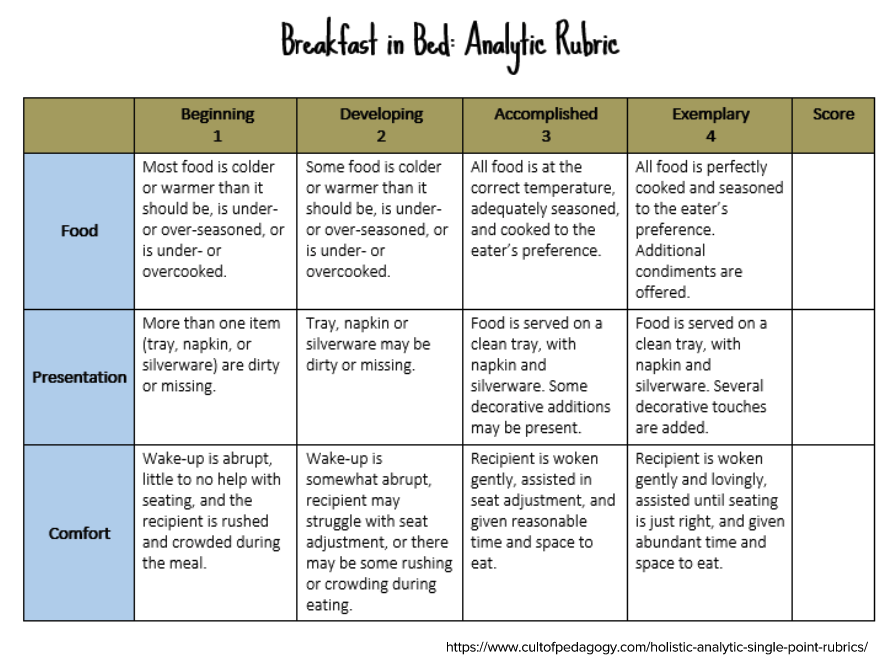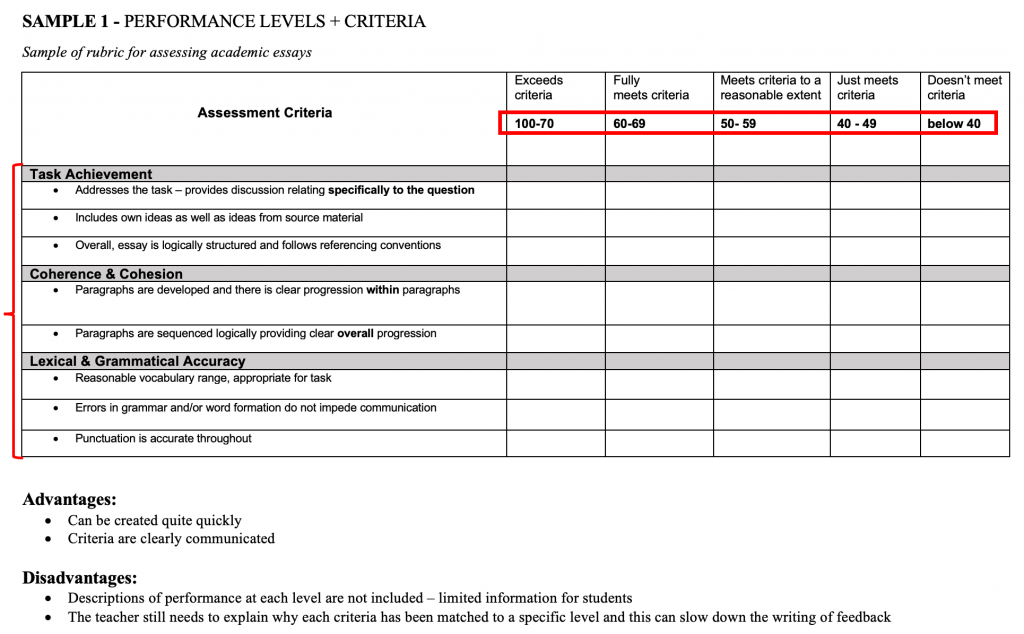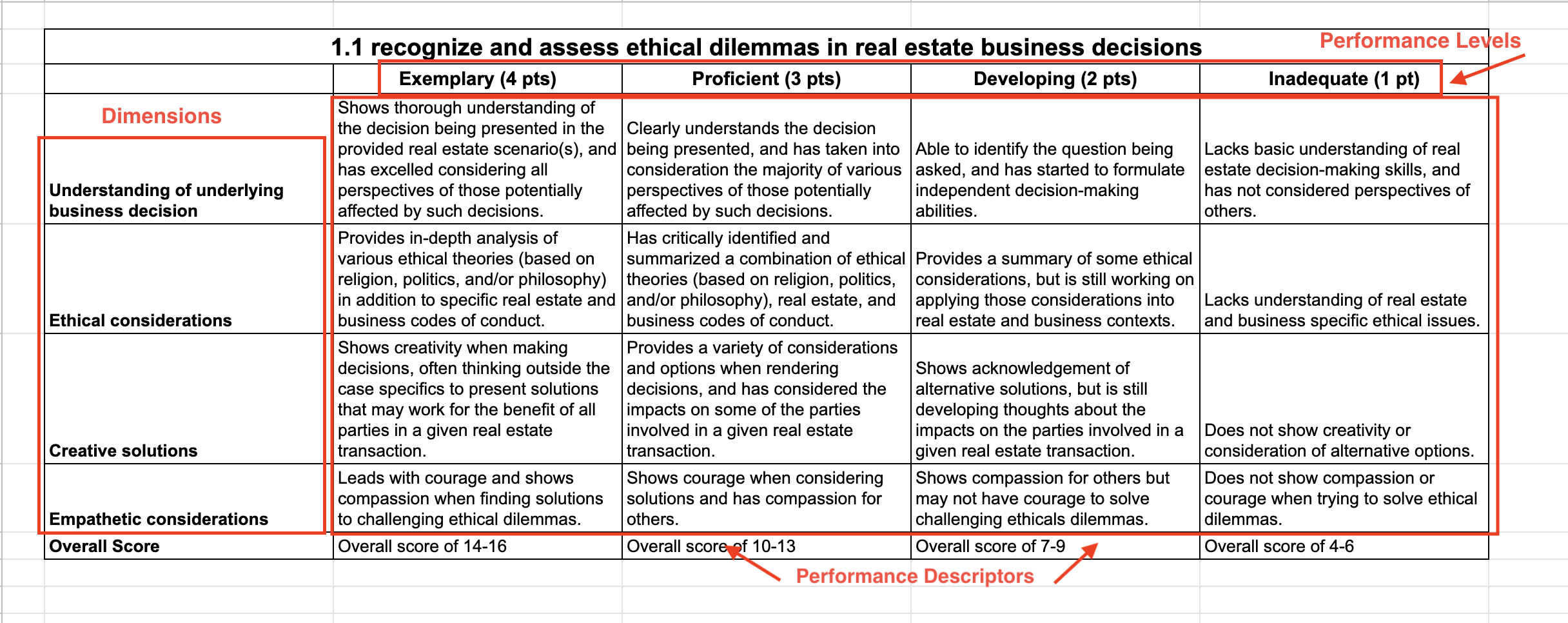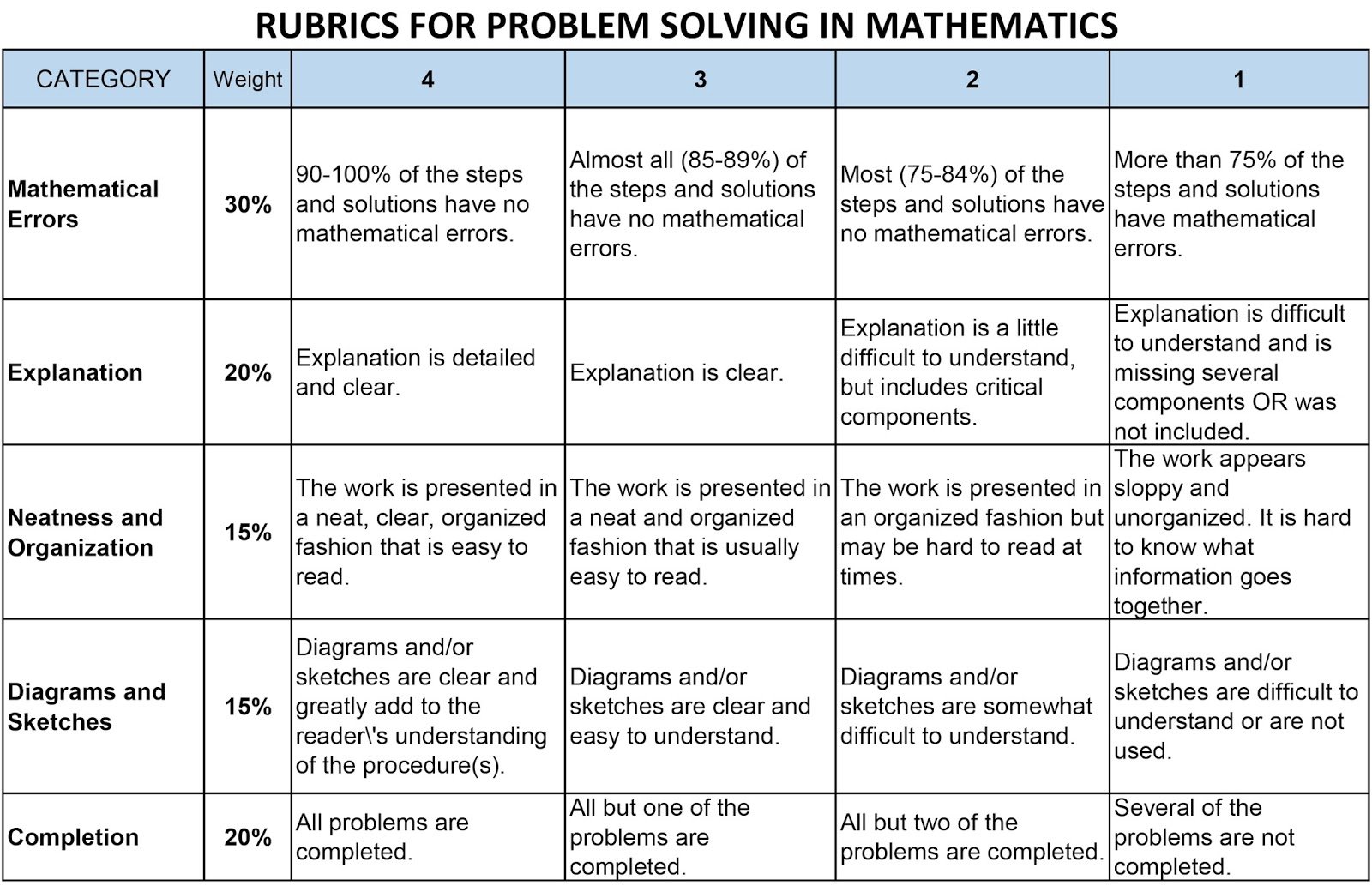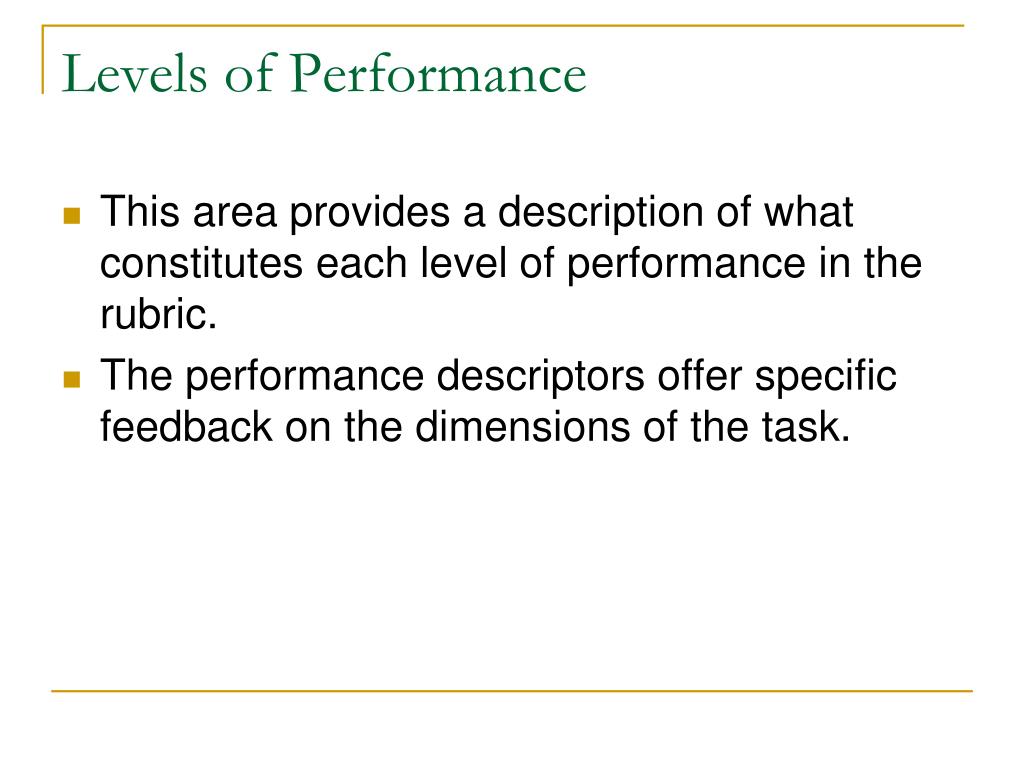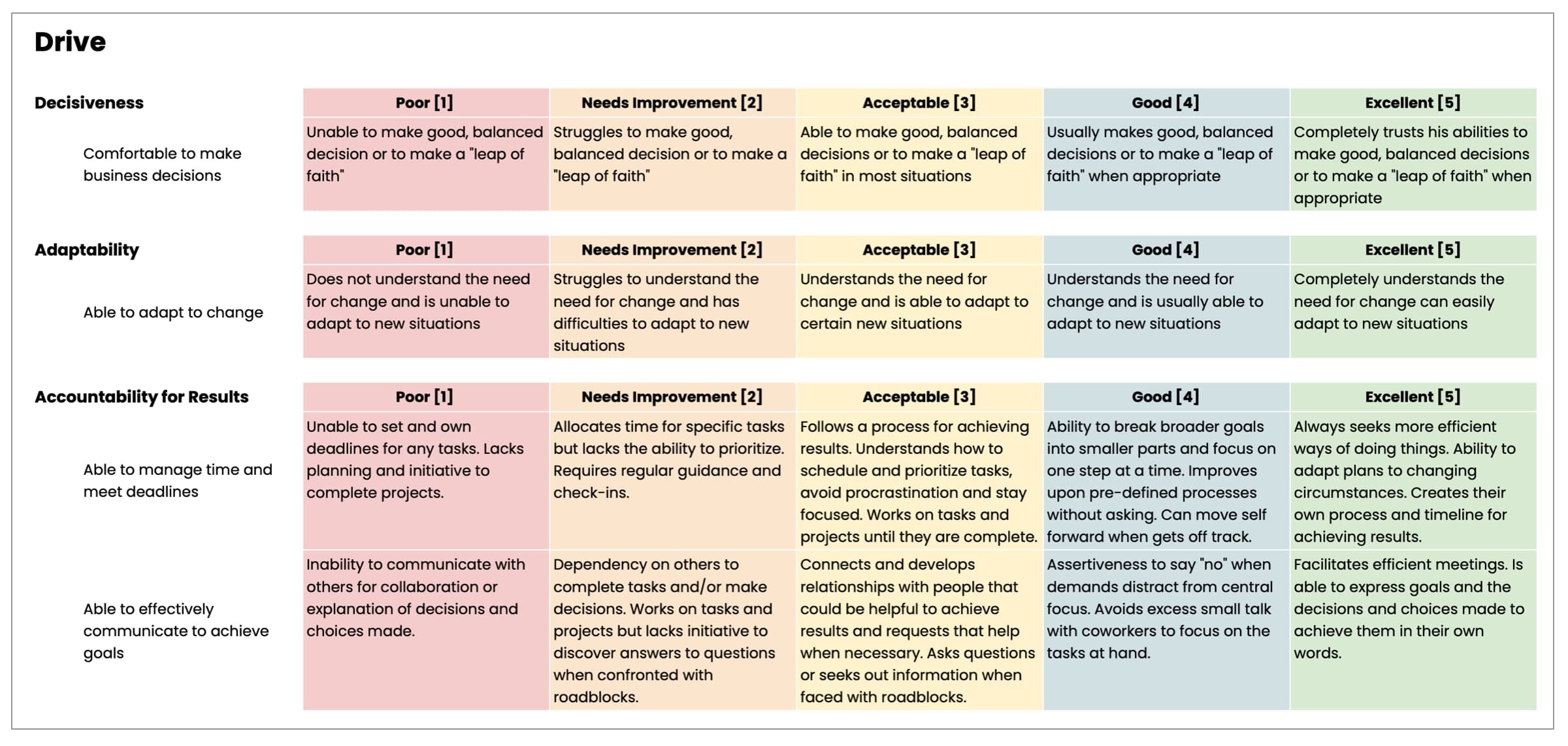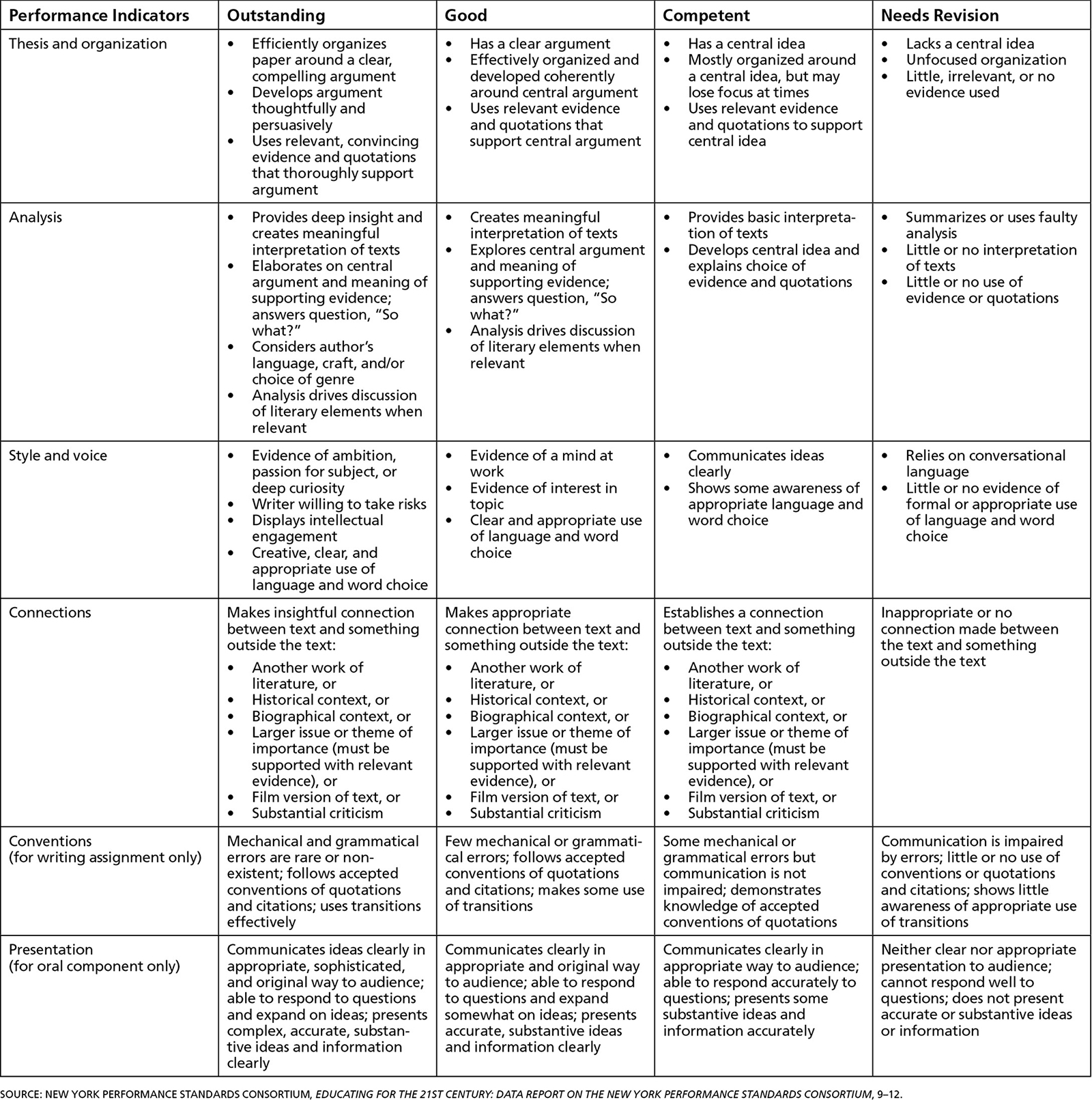Performance Levels For Rubrics - A rating scale that identifies students’ level of mastery within each criterion rubrics can be used to provide feedback to. Structure of a rubric with three different criteria (content knowledge, research skills, and presenting skills) and five levels of. Stevens and levi (2013) advocate for. Rubrics allow reliable scoring to the degree that evaluative language (“excellent,” “poor”) and comparative language (“better than,” “worse.
Rubrics allow reliable scoring to the degree that evaluative language (“excellent,” “poor”) and comparative language (“better than,” “worse. A rating scale that identifies students’ level of mastery within each criterion rubrics can be used to provide feedback to. Stevens and levi (2013) advocate for. Structure of a rubric with three different criteria (content knowledge, research skills, and presenting skills) and five levels of.
Structure of a rubric with three different criteria (content knowledge, research skills, and presenting skills) and five levels of. Rubrics allow reliable scoring to the degree that evaluative language (“excellent,” “poor”) and comparative language (“better than,” “worse. Stevens and levi (2013) advocate for. A rating scale that identifies students’ level of mastery within each criterion rubrics can be used to provide feedback to.
4 Performance Levels Rubric Template Rubric template, Rubrics, Templates
Structure of a rubric with three different criteria (content knowledge, research skills, and presenting skills) and five levels of. Stevens and levi (2013) advocate for. Rubrics allow reliable scoring to the degree that evaluative language (“excellent,” “poor”) and comparative language (“better than,” “worse. A rating scale that identifies students’ level of mastery within each criterion rubrics can be used to.
A Fresh Look at Rubrics and Norming Marco Learning
Rubrics allow reliable scoring to the degree that evaluative language (“excellent,” “poor”) and comparative language (“better than,” “worse. A rating scale that identifies students’ level of mastery within each criterion rubrics can be used to provide feedback to. Stevens and levi (2013) advocate for. Structure of a rubric with three different criteria (content knowledge, research skills, and presenting skills) and.
Rubrics Educational Development and Quality
Rubrics allow reliable scoring to the degree that evaluative language (“excellent,” “poor”) and comparative language (“better than,” “worse. Structure of a rubric with three different criteria (content knowledge, research skills, and presenting skills) and five levels of. Stevens and levi (2013) advocate for. A rating scale that identifies students’ level of mastery within each criterion rubrics can be used to.
Rubric Guidelines Pepperdine Community
A rating scale that identifies students’ level of mastery within each criterion rubrics can be used to provide feedback to. Stevens and levi (2013) advocate for. Structure of a rubric with three different criteria (content knowledge, research skills, and presenting skills) and five levels of. Rubrics allow reliable scoring to the degree that evaluative language (“excellent,” “poor”) and comparative language.
Performance Rubric — The Shed
Rubrics allow reliable scoring to the degree that evaluative language (“excellent,” “poor”) and comparative language (“better than,” “worse. A rating scale that identifies students’ level of mastery within each criterion rubrics can be used to provide feedback to. Stevens and levi (2013) advocate for. Structure of a rubric with three different criteria (content knowledge, research skills, and presenting skills) and.
Performance Rubrics DIMENSION PERFORMANCE LEVEL EXCELLENT (10095 pts
Structure of a rubric with three different criteria (content knowledge, research skills, and presenting skills) and five levels of. Stevens and levi (2013) advocate for. Rubrics allow reliable scoring to the degree that evaluative language (“excellent,” “poor”) and comparative language (“better than,” “worse. A rating scale that identifies students’ level of mastery within each criterion rubrics can be used to.
What is the role of rubrics in performancebased education? K20 Blog
Rubrics allow reliable scoring to the degree that evaluative language (“excellent,” “poor”) and comparative language (“better than,” “worse. Stevens and levi (2013) advocate for. Structure of a rubric with three different criteria (content knowledge, research skills, and presenting skills) and five levels of. A rating scale that identifies students’ level of mastery within each criterion rubrics can be used to.
PPT Assessment Rubrics PowerPoint Presentation, free download ID
Stevens and levi (2013) advocate for. A rating scale that identifies students’ level of mastery within each criterion rubrics can be used to provide feedback to. Structure of a rubric with three different criteria (content knowledge, research skills, and presenting skills) and five levels of. Rubrics allow reliable scoring to the degree that evaluative language (“excellent,” “poor”) and comparative language.
Competency Based Performance Management
A rating scale that identifies students’ level of mastery within each criterion rubrics can be used to provide feedback to. Structure of a rubric with three different criteria (content knowledge, research skills, and presenting skills) and five levels of. Rubrics allow reliable scoring to the degree that evaluative language (“excellent,” “poor”) and comparative language (“better than,” “worse. Stevens and levi.
Sample Performance Task and Rubric
Rubrics allow reliable scoring to the degree that evaluative language (“excellent,” “poor”) and comparative language (“better than,” “worse. Stevens and levi (2013) advocate for. Structure of a rubric with three different criteria (content knowledge, research skills, and presenting skills) and five levels of. A rating scale that identifies students’ level of mastery within each criterion rubrics can be used to.
Structure Of A Rubric With Three Different Criteria (Content Knowledge, Research Skills, And Presenting Skills) And Five Levels Of.
Rubrics allow reliable scoring to the degree that evaluative language (“excellent,” “poor”) and comparative language (“better than,” “worse. Stevens and levi (2013) advocate for. A rating scale that identifies students’ level of mastery within each criterion rubrics can be used to provide feedback to.

